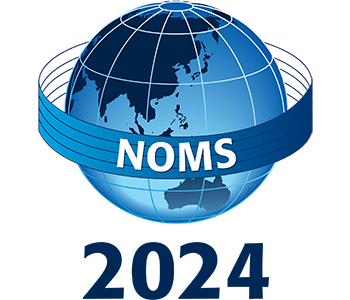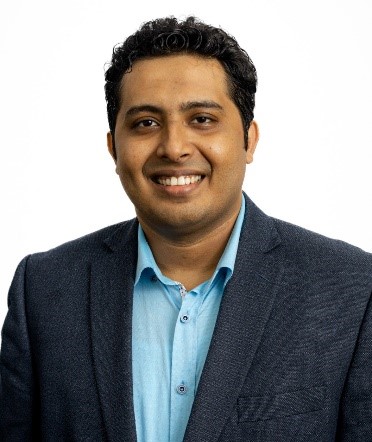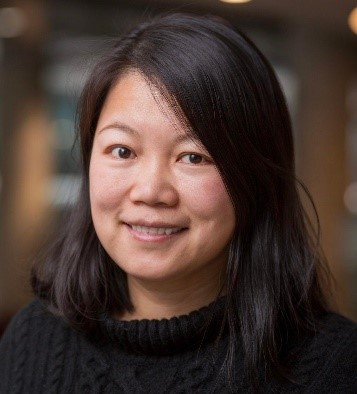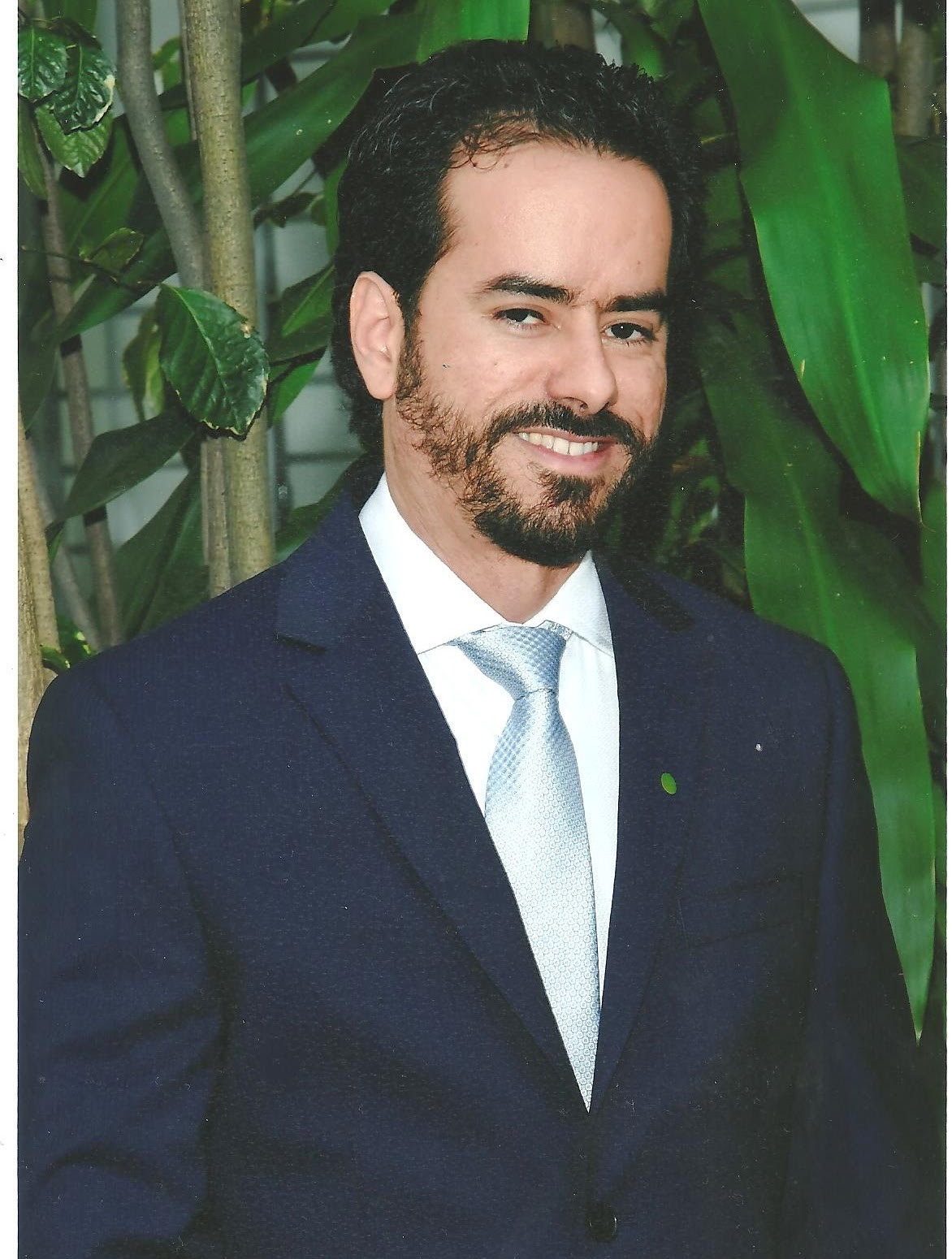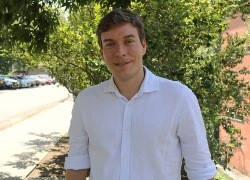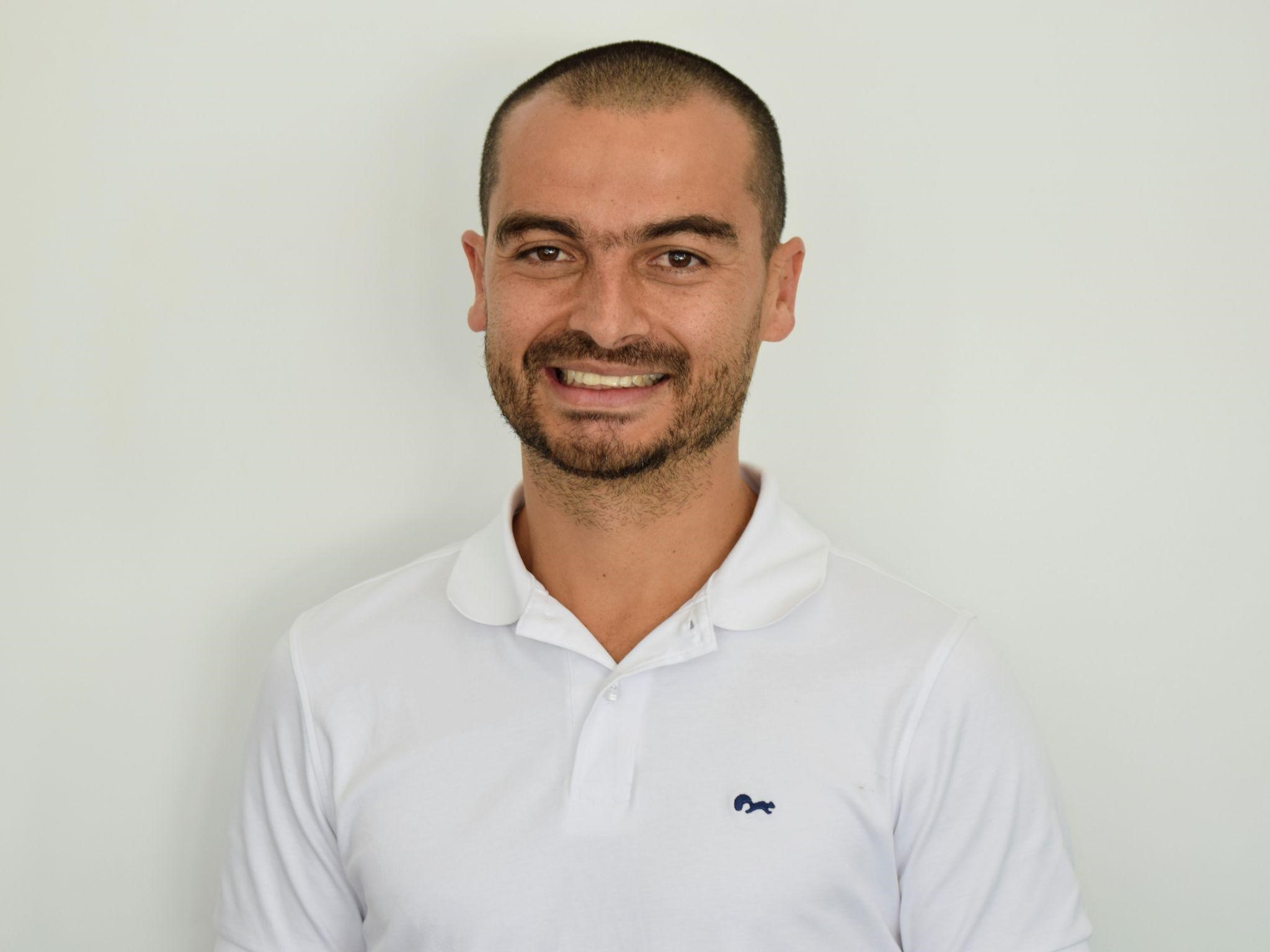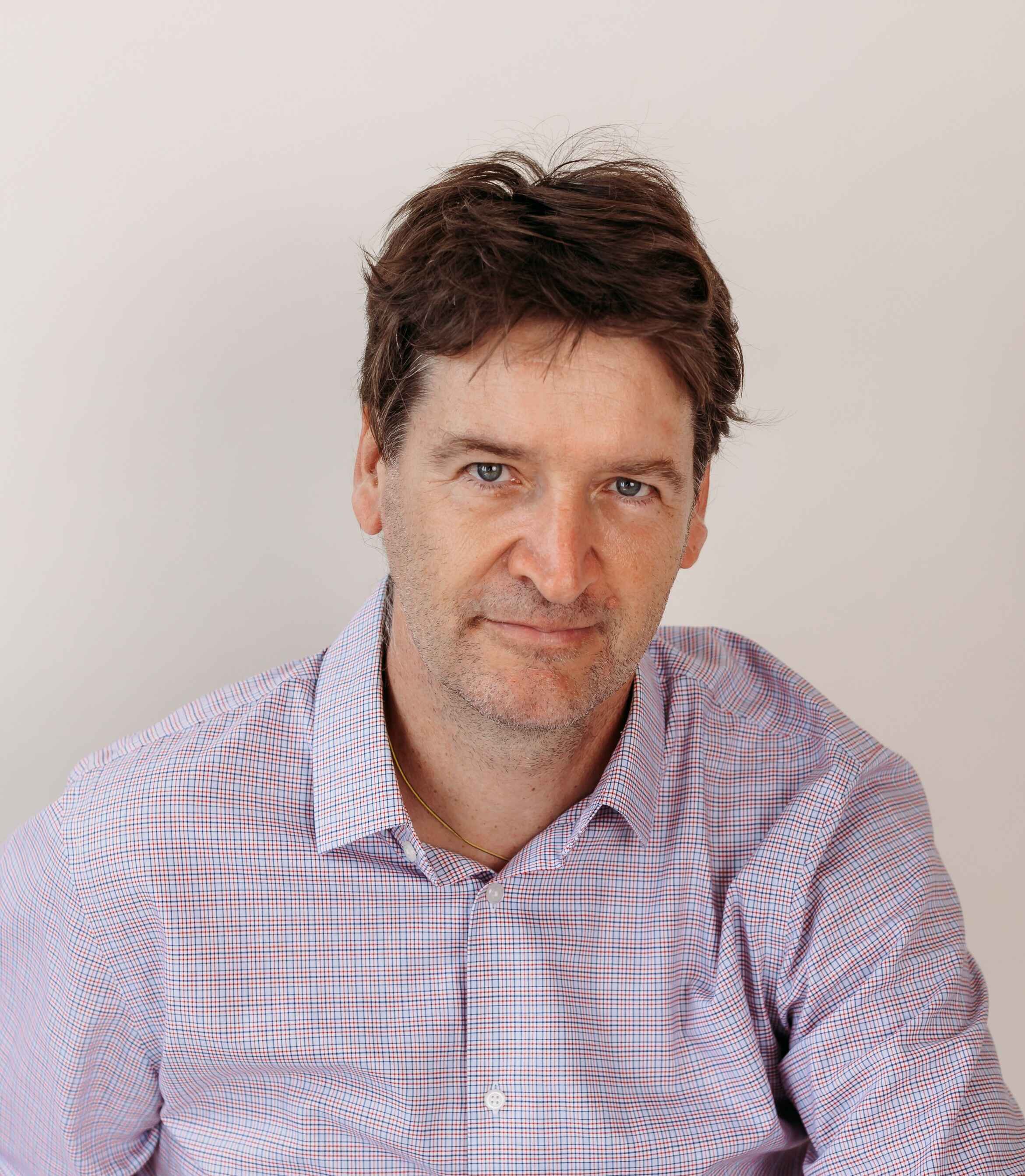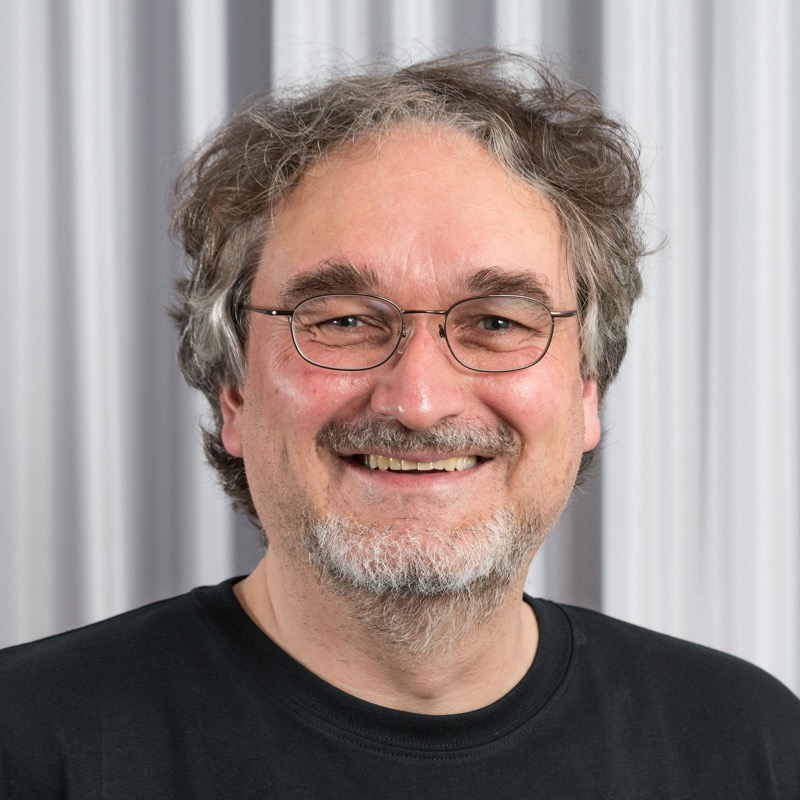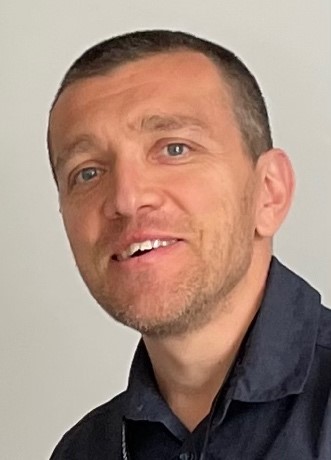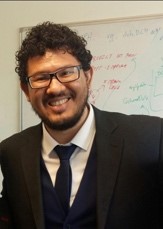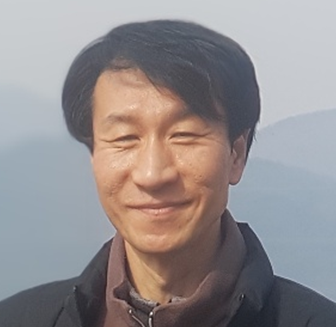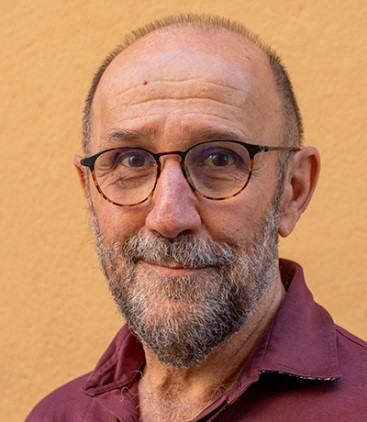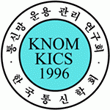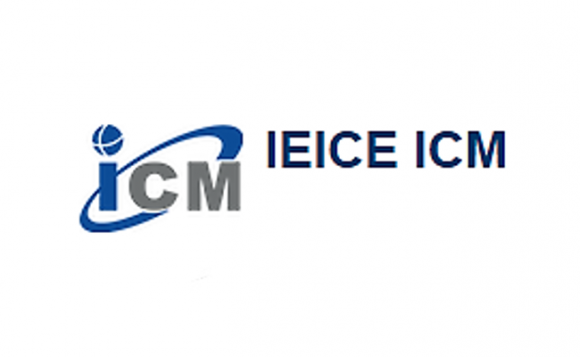Monday, May 6th, 2024
|
09:00 – 12:30 |
TU1: Optimization solutions for Digital Twins Reinforcement Learning and Computational Intelligence approaches |
|
Room: Haegeum B |
|
|
Instructors: Filippo Poltronieri, Department of Engineering, University of Ferrara, Italy |
Abstract:
Digital Twins, virtual replicas of physical systems, hold promise in network and service management research. In this area of research, Digital Twins gained a lot of attention as they represent a useful approach for studying the behavior of complex systems such as large telecommunication networks or large IT systems relying on multiple and interconnected microservices. Specifically, Digital Twins methodologies can effectively enable what-if scenario analysis, thus allowing network and service providers to evaluate the impact of multiple system configurations in a shorter time without altering the physical system. However, to run accurate what-if analysis there is the need to implement complex and computationally expensive simulations, whose optimization requires solving dynamic and expensive optimization problems - that traditional optimization solutions, such as Integer Linear Programming (ILP), are not always well suited for. To enable and foster research in this area, this tutorial aims to provide a comprehensive overview of state of the art optimization methodologies and tools for digital twins. More specifically, this tutorial explores the adoption of computational intelligence (CI) and reinforcement learning (RL) methods, including Genetic Algorithms, Particle Swarm Optimization, Multi-swarm Particle Optimization, Grey-wolf Optimization, State–Action–Reward–State–Action, Deep Q-Network, and Proximal Policy Optimization, to optimize Digital Twins for network and service management problems.
Biographies
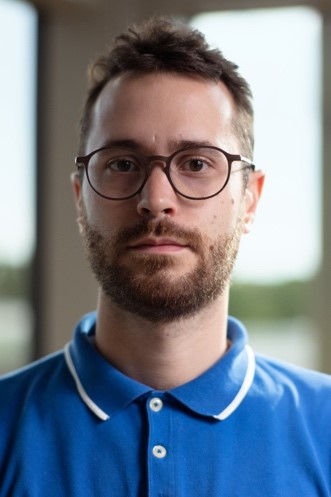 |
Filippo Poltronieri Filippo Poltronieri received a Ph.D. degree from the University of Ferrara, Italy, in 2021. He joined the interdepartmental Distributed System Research Group https://ds.unife.it), led by Prof. Cesare Stefanelli in 2017. He is currently an Assistant Professor (RTD-A) at the Department of Engineering of the University of Ferrara, where he teaches the “Computer Networks Laboratory” course. Filippo Poltronieri's research interests include Distributed Systems, Cloud Continuum, Digital Twins, and tactical networks. He conducts his research activity with national and international scientists from several institutions as demonstrated by the publications in international journals and conference proceedings. As part of his research career, he has been visiting the Florida Institute for Human & Machine Cognition (IHMC) in Pensacola, FL (USA) in 2016-2017 and 2018. |
Monday, May 6th, 2024
|
09:00 – 12:30 |
TU2: Securing the Future of Web Transport: A Deep Dive into QUIC Protocol Security and Performance |
|
Room: Haegeum A |
|
|
Instructors: Y A Joarder, Concordia University, Canada Carol Fung, Concordia University, Canada |
Abstract:
This tutorial offers an introduction to the QUIC protocol, focusing on its security and performance aspects. The tutorial aims to provide a comprehensive understanding of QUIC's innovative features, including its integration with TLS, loss detection, congestion control, and the evolution to HTTP/3. Participants will learn about QUIC's architecture, security mechanisms, performance optimization strategies, and practical applications. The tutorial will overview the recent research progress on QUIC security and highlight the significance of QUIC in modern web transport, emphasizing its role in enhancing both security and performance.
Biographies
|
|
Y A Joarder Y A Joarder is a Ph.D. student in Information and Systems Engineering at Concordia University, Montreal, Canada, specializing in cybersecurity and protocol security. With a rich academic background, including a Master's and Bachelor's in Information & Communication Engineering from Islamic University, Bangladesh, Mr. Joarder brings over 4.5 years of research and 3.8 years of teaching experience in Computer Science and Engineering in Bangladesh and Canada respectively. At Concordia's Next Generation Network Security (NGNSec) Lab, he focuses on QUIC protocol security research, complemented by his role as a Graduate Teaching Assistant, where he teaches a variety of courses, including Network Security Architecture and Management. His expertise spans a broad spectrum of programming, cyber-security tools, and scientific computing, making him a prolific contributor to international conferences and journals, especially in areas related to QUIC protocol security. Mr. Joarder is recognized for his analytical prowess, educational contributions, and a deep commitment to advancing the field of network security. |
|
|
Carol Fung Professor Dr. Carol Fung, currently the Gina Cody research chair at Concordia University, Canada, is an esteemed figure in network and security management with a Ph.D. in Computer Science from the University of Waterloo, Canada. Her academic journey includes influential roles as Associate and Assistant Professor at Virginia Commonwealth University, USA. Dr. Fung's research, marked by a focus on network management and security in IoT, cloud networks, and software-defined networks, particularly emphasizes trust management, anomaly detection, and machine learning. She is a recipient of numerous accolades, such as the IEEE/IFIP IM 2015 Young Professional Award and the Alumni Gold Medal from the University of Waterloo. A mentor to many doctoral, masters, and undergraduate students, Dr. Fung has also authored the book "Intrusion Detection Networks: A Key to Distributed Security" and numerous scholarly articles. Her patents and innovative research, especially in application permission recommendation and control, highlight her expertise. As an educator, Dr. Fung's contributions to cybersecurity and network management are highly regarded, significantly impacting both academic and professional communities in these fields. |
Monday, May 6th, 2024
|
14:00 – 17:30 |
TU3: Feature Extraction leveraging Programmable Data Planes for Network Protection based on Reinforcement Learning |
|
Room: Haegeum B |
|
|
Instructors: Sergio Armando Gutiérrez, Universidade de Antioquia, Columbia Juan Felipe Botero, Universidade de Antioquia, Columbia Adrian Lara, University of Costa Rica |
Abstract:
Programmable Data Planes have created an expanded landscape for the complete realization of the Software Defined Networking paradigm. Programmability enables further customization of the logic of packet processing within forwarding devices. Thanks to the capabilities of Programmable Forwarding Devices (PFD), it is possible to implement personalized functions that make it possible to introduce additional intelligence for packet processing at the data plane while preserving the benefits of centralized logical view of the network state at the control plane.
As an option to deal with the dynamic conditions exhibited in modern communication infrastructures, specially in the context of network protection, Reinforcement Learning (RL) has arised as an important approach. RL can improve network policies through the interaction with the runtime environment of the infrastructure in order to find the optimal policy for a given use case. When an environment changes, RL can gradually discover new optimal strategies, by performing adjustments based on trial and error and environmental feedback. In this tutorial, we explore how to take advantage of the functionalities of PFDs for one of the crucial operations of RL which is Feature Extraction. Given the visibility that PFDs have of the traffic while considering their computational limitations, it is possible to use these devices, located at the data plane, to extract features which can be passed up as input to complex RL algorithms controlling different operational aspects of the network.
Biographies
|
|
Sergio Armando Gutiérrez (presenter) Sergio Armando Gutiérrez is Professor at Universidad de Antioquia and Researcher at GITALab, research group of that institution. He received the B.Eng. degree in Computer Science from Universidad de San Buenaventura, Medellìn, Colombia, in 2008, the M.Eng in Computer Science degree from Universidad Nacional de Colombia in 2011 and the Ph.D in Computer Science degree from Universidad Nacional de Colombia in 2018. |
|
|
Juan Felipe Botero (co-author) Juan Felipe Botero is an associate professor at Universidad de Antioquia, Medellín, Colombia. He received the B.S. degree in computer science from the University of Antioquia, Medellín, Colombia, in 2006, and the M.Sc. and Ph.D. degrees in telematics engineering from the Network Engineering Department, Technical University of Catalonia, Barcelona, Spain, in 2008 and 2013, respectively. Since 2013, he has been Professor with the Telecommunications Engineering Department, University of Antioquia, where he is currently with the Applied Telecommunications Research Group. His current research interests include the Internet of the future, in particular network programmability, network virtualization, mathematical programming, routing, energy efficiency and network flows, SDN, and NFV. |
|
|
Adrian Lara (co-author) Adrian Lara is an associate professor at the Computer Science department of the University of Costa Rica. He received his Ph. D. degree in Computer Science from the University of Nebraska in 2015. He teaches systems courses such as operating systems, communication networks and his research areas include network security, software-defined networking, IoT and machine learning. His Google Scholar profile is available at https://scholar.google.com/citations?user=sRrfw8EAAAAJ&hl=en. |
Monday, May 6th, 2024
|
14:00 – 17:30 |
TU4: Greening the Network: Advancing Sustainability of Networks –Challenges, and Solution Approaches |
|
Room: Haegeum A |
|
|
Instructors: Alexander Clemm, Sympotech, USA Cedric Westphal, Futurewei Technologies, USA Toerless Eckert, Futurewei Technologies, USA |
Abstract:
Reducing humankind’s carbon footprint and greenhouse gas emissions to slow climate change is one of humanity’s Grand Challenges. Communication networks play an important role in addressing that challenge. On one hand, they enable applications that reduce the need for physical travel and that enable solutions that optimize efficiency of resource and energy usage, from teleworking to remote operations, from smarter agriculture to more energy-efficient factory floors. On the other hand, networks themselves (in addition to applications that run over them) have a significant environmental footprint rivaling that that of entire countries. It is thus becoming important to make networks themselves "greener" and devise solutions that allow networks to be operated in ways that make them more sustainable while continuing to meet increasing traffic demands and service requirements.
Many of today’s network sustainability improvements relate to general advances in energy efficiency of computing hardware as well as in transmission technology (antennas, lasers). While this is where the biggest opportunities for networking infrastructure may lie, it is important to extend questions of greenness to other layers in the networking stack - to data and control plane, to routing and traffic forwarding, to the ways in which networks are organized and deployed. For example, can data planes be designed in ways that make them inherently more energy-efficient? What protocol advances could enable greener networking solutions? How can networks be optimized not just for QoS or utilization but for carbon? What novel tools are needed to operate networks more sustainably? How can peak demand be flattened to minimize waste due to overprovisioning? How can we even properly account for energy usage and other sustainability parameters to be optimized? In which ways can network programmability, faster control loops, and AI- or intent-based networking help?
The tutorial aims to provide a broad overview and convey a general understanding of the subject area, including of the factors which contribute to the environmental impact of networking, of technical challenges, pitfalls, and constraints in the development of solutions, and of selected solution approaches. The tutorial will also provide an overview of current standardization activities in that subject area (with an emphasis of activities that are currently taking place in the IETF and the Internet Architecture Board’s associated E-Impact Program). In addition, the tutorial will point out opportunities for further research and further engagement on the topic.
Biographies
 |
Alexander Clemm Dr. Alexander Clemm has been involved in networking software and management technology throughout his career, providing technical leadership from original conception to customer delivery for countless projects and product development efforts. His most recent activities are in the areas of sustainable networking, future networking services, network analytics, intent-based networking, service assurance, and telemetry. Alex has for many years been regularly serving on the committees of NOMS/IM, NetSoft, and CNSM (including on several occasions as general co-chair or TPC co-chair). He is the recipient of the 2020 Salah Aidarous Award given by IEEE CNOM and IFIP TC6.6 to "an individual who has provided unremitting service and dedication to the IT and Telecommunications Network Operations and Management community". From 2008-2017, he was also moonlighting as an Adjunct Professor on the Faculty for Computer Engineering at Santa Clara University where he taught courses on Network Management. Alex has an extensive publication record including 70+ papers, 70+ patents, and 15 RFCs. He holds an M.S. degree from Stanford University and a Ph.D. from the University of Munich, Germany, both in Computer Science. |
|
|
Cedric Westphal Cedric Westphal is a Principal Research Architect with Futurewei working on future network architectures, both for wired and wireless networks. His current focus is on next generation Internet. He was an adjunct assistant, then associate professor with the University of California, Santa Cruz from 2009 to 2019. Prior to Futurewei, he was with DOCOMO Innovations from 2007 to 2011 in the Networking Architecture Group focusing on next generation network architectures. He was at Nokia Research Center (now Nokia Bell Labs) from 2000 to 2006. He has received a MSEE in 1995 from Ecole Centrale Paris, and a MS (1995) and PhD (2000) in EE from the University of California, Los Angeles. From 1997 to 2000, he was a visiting researcher at Stanford University. Cedric Westphal has authored and coauthored over 150 journal and conference papers, including several best paper awards at conferences such as IEEE ICC’11, ICNC’18, IEEE MuSIC’16 and others. He has been awarded over thirty patents. He has received the IEEE Communication Society IINTC 2018 Technical Achievement Award to “recognize a lifelong set of outstanding technical contributions in the area of information infrastructure and networking.” He is an associate editor for IEEE Transactions on Multimedia and for the ITU Journal on Future and Evolving Technology (J-FET), and was an area editor for the ACM/IEEE Transactions on Networking, an assistant editor for (Elsevier) Computer Networks journal, and a guest editor for Ad Hoc Networks journal and ACM/IEEE JSAC. He has served as a reviewer for the NSF, GENI, the EU FP7, INRIA, and other funding agencies; he has chaired the technical program committee of several conferences, including IEEE ICC (NGN symposium), IEEE NFV-SDN or IEEE IPCCC, and he was the general chair for IEEE INFOCOM 2016. He is a senior member of the IEEE. |
|
|
Toerless Eckert Toerless Eckert is a Distinguished Engineer at Futurewei, California, USA where he works on innovations in architecture and standardization of the Internet and its protocols. His experiences includes planning, building and operating networks with new technologies, educating and supporting customers around the globe, researching, developing, standardizing and building network products, protocol and services and deve loping advanced, network integrated multimedia applications. Toerless is subject matter expert for routing, multicast, MPLS, QoS and secure network automation. He was a part of Cisco Systems IOS operating system development team where he worked on IP/IPv6/MP LS multicast and from the early 2000ths, IP/IPv6 multicast standardization in DOCIS 3.0 and integration of multicast with a variety of networked applications. He led the architectures for the Medianet and Autonomous Networking advanced development projects. Currently, Toerless is co chair of the IETF ANIMA working group, which is defining an IPv6 centric and fully autonomous and secure network communications infrastructure. He holds more than 45 patents, issued and pending and is co-author of 13 IETF RFCs and various IETF drafts. Beside IETF and CableLabs, he has also worked for standardization in ETSI and ITU-T and has published research papers and research book chapters. Toerless holds a Dipl. Inf. from Friedrich Alexander Universität Erlangen Nürnberg, Germany. |
Friday, May 10th, 2024
|
09:00 – 12:30 |
TU5: Reputation Systems in 5G/6G Networks |
|
Room: Haegeum B |
|
|
Instructors: Bruno Sousa, University of Coimbra, Portugal |
Abstract:
Reputation System are important approaches to build trust through reputation. These systems have been extensively used in marketplaces, social media platforms and Peer-to-Peer networks, as an approach measuring the entities’ trustworthiness and reliability. Nowadays, reputation systems rely on decentralized networks like blockchains to manage reputation information. With a decentralized model, the information of trust is distributed and can leverage on the benefits of blockchain technology (integrity, immutability, and authenticity). Blockchain as a distributed ledger does not rely on a secure/trusted third-party (centralized authority) to guarantee trust, and rather uses cryptographic mechanisms to prevent tampering of the stored data.
The notion of reputation is highly correlated with the context. In a marketplace the feedback from users is normally expressed in a five-star rate, whereby combining the opinion from different users, the reputation of a service is determined. Other reputation models consider two types of events: 1) positive, contributing positively to the reputation, 2) or negative which impact negatively thereputation.
Authorization processes in 5G/6G can rely on the trust information managed by reputation systems to authorize the network access as per the reputation score (trust information) and policies configured by the 5G/6G network operator. A device not holding a high reputation score is not authorized to access the network, while a device with a medium reputation score can be allowed but with certain limits (i.e., reduced bandwidth).
This tutorial aims to provide insights on how the decentralized reputation systems can build trust, how the trust information can be used in the authorization processes of 5G/6G networks, and how the reputation system can be employed as enablers in the Chain-of-Trust (CoT) paradigm.
The objectives of the tutorial are:
1. Provide insights regarding reputation systems with policies in 5G/6G networks.
2. Present a comprehensive description of reputation models to determine reputation scores.
3. Present a comprehensive description regarding privacy concerns in reputation systems.
4. Hands-on on Hyperledger Fabric permissioned blockchain to store reputation information.
Biographies
|
|
Bruno Sousa Bruno Sousa is an Assistant Professor in the Department of Informatics Engineering of the University of Coimbra, Portugal, since December 2018, from where he got a PhD in Informatics Engineering on the subject of Multimoming for IP-based networks, in December 2014. He is a senior researcher in the Centre for Informatics and Systems of UC (CISUC), where he has initiated his activities in 2006. He is the author of several book chapters, several publications in journals and international conferences. He has participated in the TPC of several conferences. He has participated in several European and national research projects, and is currently involved in H2020 ARCADIAN-IoT, NEXUS and MH-SDVANET projects. He was the principal research of the ELEGANT project. He is also a member of the editorial team of journals like Wiley Transactions on Emerging Telecommunications Technologies – Wiley ETT, and Frontiers in Communication and Networks. He is also a member of the coordination teams of the master’s in security informatics (MSI) in the University of Coimbra. His research interests include resilience mechanisms in networks and applications/services, intrusion detection and prevention in 5G networks and for Internet of Things (IoT), and federated authentication services. |
Friday, May 10th, 2024
|
09:00 – 12:30 |
TU6: Content Steering for Adaptive Video Streaming over the Edge-Cloud Continuum: A Hands-on Experience |
|
Room: Haegeum A |
|
|
Instructors: Roberto Rodrigues Filho, Federal University of Santa Catarina, Brazil |
Abstract:
Video streaming is among the most used Internet applications nowadays, with many big techs competing for a share in a billion-dollar market size. The demands of these video streaming products require the careful utilization of computing resources strategically placed close to the end users to deliver high-quality experience services. New technologies such as 6G and edge-cloud continuum infrastructures have been investigated to supply these increasing computing resource demands. These technologies are envisioned to be combined to provide fast and reliable data transfer for extremely high volumes of data. The edge-cloud continuum, particularly, also enables service placement mobility from the cloud data centers placed on the core of the network all the way to the edge devices closer to the end-users. However, network management to support seamless service mobility and timely and precise computing resource allocation to maintain high-quality service experiences is extremely complex. As a way forward, in this scenario, the concept known as zero-touch network, where there is no need for human interaction to (re)configure networked systems and the network itself, has gained popularity. In the video streaming application domain, the combination of Content Steering architecture, part of the Dynamic Adaptive Streaming over HTTP (DASH) protocol, and container orchestrator technologies would allow strategies for autonomous video streaming services placement throughout the continuum with minimal human involvement and maximum computing resources exploitation. In this context, this tutorial offers a hands-on experience with the state-of-the-art technology that supports content steering for adaptive video streaming on the edge-cloud continuum. We present the latest technology, architectures, and tools that enable the creation and autonomous management of adaptive video streaming applications on the continuum, leveraging the hierarchy of computing resources to provide high-quality experiences to end-users. Our tutorial provides both a theoretical and practical experience for the participants who will have access to a small edge-cloud virtual testbed to explore strategies for steering requests to video content to services placed throughout the computing continuum. We will also lay down current challenges and future opportunities for research in this area.
Biographies
|
|
Roberto Rodrigues-Filho Roberto Rodrigues-Filho serves as an Assistant Professor in the Department of Computing at the Federal University of Santa Catarina, where he teaches Computer Networking and Distributed Systems courses for Computer Engineering undergraduates. In addition to his teaching responsibilities, he is actively involved in research focused on Self-adaptive and Emergent Distributed Systems. His academic background includes a Ph.D. in Computer Science from Lancaster University, UK, completed in 2018, and a master's and bachelor's degree in Computer Science from the Federal University of Goiás, Brazil, obtained in 2013. His postdoctoral endeavors have been extensive and diverse, encompassing roles such as a researcher at the University of Campinas, focusing on a project in partnership with Ericsson Research investigating service placement and resource allocation on computing continuum infrastructures, a Postdoctoral Fellowship at the Federal University of Goiás working on 'Autonomic Composition of Software Systems for Smart Cities', and a Postdoctoral Research Associate position at Lancaster University, UK, where he delved into 'The Emergent Self-Aware Data Centre: Autonomous Software Landscaping at Scale'. In addition to these roles, he was a visiting researcher at IRISA/INRIA, University of Rennes 1, France, in the summer of 2019, and participated in the prestigious Schloss Dagstuhl seminar series in Germany in 2018, where he extensively discussed the topic 'Software Engineering for Intelligent and Autonomous Systems'. Dr. Rodrigues-Filho's primary research interests are rooted in Autonomic Computing, with a special emphasis on Emergent Distributed and Self-organising Systems. |
Friday, May 10th, 2024
|
14:00 – 17:30 |
TU7: Multi-5G/6G Autonomous Networks (ANs) Federation: Challenges, Solutions, and PoC |
|
Room: Haegeum B |
|
|
Instructors: Taesang Choi, ETRI, Korea |
Abstract:
Future Networks in 5G/6G will continue to expand in scale, complexity and interconnectivity, and will be highly shaped by distributed systems that serve various use cases that go beyond current use cases like mMTC and URLLC. This will be coupled with an increasing demand for autonomy in self-provisioning and self-management, network interoperability, and service federation on a very dynamic flexible way. Requirements on systems-of-systems architectures will become more relevant as multiple autonomous/semi-autonomous systems/networks (AN) adaptively seek to operate and interact with their peers. Federated Distributed Open Platforms (DOPs) as peers for cross-industry sectors end-to-end (E2E) services innovation and delivery agility can meet such requirements. The DOPs should be formed by way of federations of ICT network facilities and assets that are owned by various sectors (including public sector ICT infrastructures, enterprise/private ICT infrastructures, government owned infrastructures, research institutes, and other stakeholders). The use of federation and associated mechanisms is a promising technology for interconnecting systems, innovation and service delivery by the federating AN systems; and allowing asset sharing and extending traditional eco-systems and value-chains with further resources and stakeholders. In this tutorial, we first examine various challenges for such multi-ANs federation. We then exlain existing and developing solutions ranging from standards, open source tools, and R&D solutions. Finally, we introduce our R&D proof of concept solution, AgileAFP: ML-enabled Agile Private/Public 5G/B5G Service and Network Autonomic Federation Platform with a real-world private and public ITS (Intelligent Transport System) federation use case.
Biographies
|
|
Taesang Choi Taesang Choi is a Principal Engineering Staff in ETRI, having joined the institute in 1996 after research and development careers on network and service management of telecommunications during his Ph.D studies at the University of Missouri at Kansas City. He has successfully managed a number of projects in the area of networking, especially in Internet traffic engineering, measurement and analysis, QoS, SDN, and NFV, autonomic management. He has successfully managed related projects such as OPEN-TAM subproject in ONOS consortium, a Korean government supported project, “Smart Networking Core Technology Development” which addresses SDN/T-SDN/NFV control and management for carrier-grade networks. Currently he is a project coordinator of “Agility” project. He has had substantial experience as an educator, workshop facilitator and public speaker. He has spoken at various regional and international conferences and workshops (NOMS, APNOMS, IM, etc.) as a technical session speaker and tutorial speaker. He has worked as an active organizing committee member and reviewer in a number of conferences, workshops and symposiums. He has also been actively contributed to various standardization organizations and open source communities such as ONF, ETSI NFV-ISG, ITU-T, IETF and ONOS in the area of SDN/NFV management, 5G network management, Internet traffic engineering, Internet traffic measurement and analysis, and Future Internet Management since 1993. His current research interests are autonomic network management and control, and Quantum information technology management and control. |
Friday, May 10th, 2024
|
14:00 – 17:30 |
TU8: Integrity attestation of distributed infrastructures (cloud, SDN, NFV) |
|
Room: Haegeum A |
|
|
Instructors: Antonio Lioy, Politecnico di Torino, Italy |
Abstract:
Remote attestation is a hot topic today in cloud computing and networking, as demonstrated by the different standardization groups active in this area (TCG, ETSI-NFV, IETF-RATS). Attestation is the ability to provide undeniable and unforgeable evidence about the hardware and software identity and integrity state of a network component. This evidence can be evaluated by an external verifier to attest the state of the node as good or compromised. In the latter case, appropriate remediation actions can be taken.
The tutorial will introduce the basic concepts of attestation (root-of-trust, measurements), the protocols involved, and the architectural design of an integrity attestation system, as a support for security and operations management. The goal is to let the participants understand the foundations of this important technology, its deployment strategy, and identify the open-source and commercial solutions available for practical application.
Biographies
|
|
Antonio Lioy Antonio Lioy holds a MSc in Electronic Engineering and a PhD in Computer Engineering. He is Full Professor of Cybersecurity at the Politecnico di Torino, Italy, where he leads the TORSEC research group. He has 30+ years of teaching experience at undergraduate, graduate, and PhD level, as well as for cybersecurity training in the industry. Since 1996, he has taken part to more than 20 European research projects in the cybersecurity area and published more than 100 research papers. His research interests are in the fields of electronic identity, network security, trusted computing, and policy-based design and monitoring of modern IT infrastructures (IoT, cloud, SDN, NFV). Prof. Lioy is frequently a consultant, evaluator, and reviewer for the European and Italian institutions. |
